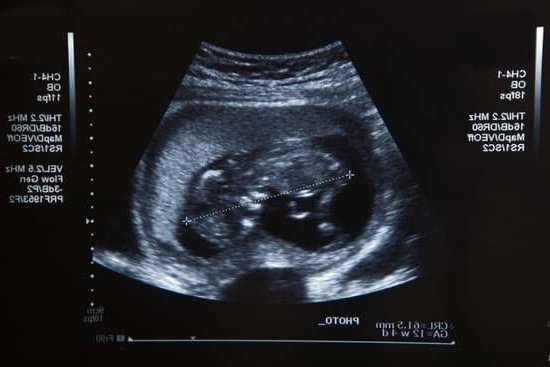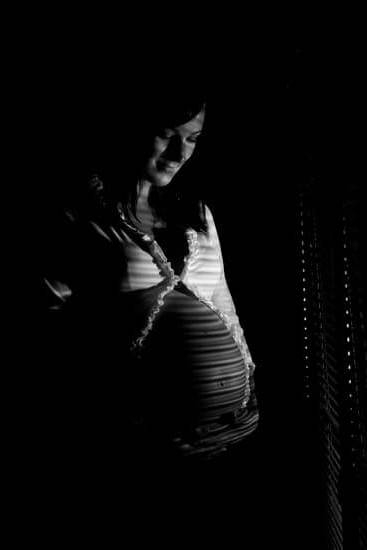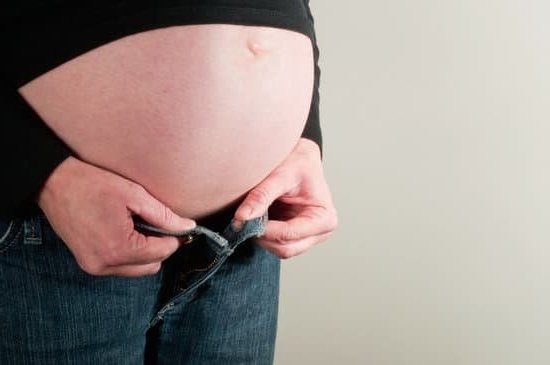When does pregnancy start? This is a question that has sparked countless debates and discussions among individuals, medical professionals, and experts in the field of reproductive health. In this article, we will delve into the concept of when pregnancy actually begins, shedding light on the various stages and factors that contribute to the beginning of this remarkable journey.
The process of conception and pregnancy is a complex and fascinating one, encompassing several key milestones from ovulation to implantation. Understanding the biological processes behind pregnancy can provide clarity on when exactly it starts and what factors contribute to its beginning.
As we explore the concept of when pregnancy actually begins, we will delve into the menstrual cycle and ovulation, fertilization (the moment of conception), implantation (when the fertilized egg attaches to the uterus), early signs and symptoms of pregnancy, confirming pregnancy through testing, and the medical perspective on when doctors consider a pregnancy to have started. Additionally, we will debunk common misconceptions about the start of pregnancy in order to provide a comprehensive understanding of this topic.
So let’s embark on this journey to unravel the mystery of when pregnancy truly begins.
Understanding the Menstrual Cycle and Ovulation
The menstrual cycle plays a crucial role in understanding when pregnancy starts. It typically lasts about 28 days, but can vary from woman to woman. The first day of the menstrual cycle is considered to be the first day of menstruation. During this time, the uterus sheds its lining, and an egg begins to mature in one of the ovaries.
Ovulation usually occurs around the middle of the menstrual cycle, roughly two weeks before the next period is expected to start. This is when a mature egg is released from the ovary and moves into the fallopian tube, where it can be fertilized by sperm. Ovulation is a key factor in determining a woman’s fertility and conception of pregnancy.
To track ovulation, there are several methods that can be used such as monitoring changes in cervical mucus, using ovulation predictor kits or tracking basal body temperature. By understanding the timing of ovulation within the menstrual cycle, individuals can better determine their most fertile days for trying to conceive or avoiding pregnancy.
- Cervical mucus changes
- Ovulation predictor kits
- Basal body temperature tracking
Fertilization
The Process of Fertilization
Fertilization typically takes place in the fallopian tubes, where the released egg travels from the ovary. During sexual intercourse, millions of sperm are ejaculated into the vagina, and they must then navigate through the cervix and uterus to reach the fallopian tubes. Once there, only one sperm will successfully penetrate and fertilize the egg.
Timeline of Fertilization
The window for fertilization is relatively short, lasting around 12-24 hours after ovulation. However, sperm can survive in the female reproductive tract for up to 5 days, so having intercourse in the days leading up to ovulation can still result in conception. This highlights why it is crucial for individuals actively trying to conceive to have a good understanding of their menstrual cycle and ovulation patterns.
Significance of Fertilization
From a biological standpoint, fertilization is widely recognized as the starting point of pregnancy. Once fertilized, the zygote begins to undergo rapid cell division as it travels down to implant itself into the lining of the uterus. Therefore, understanding when does pregnancy start involves acknowledging this critical moment of conception through fertilization.
Implantation
What Happens During Implantation
During implantation, the fertilized egg (now called a blastocyst) burrows into the uterine lining, where it will eventually develop into an embryo and placenta. This process triggers the release of hormones like human chorionic gonadotropin (hCG), which is detected by pregnancy tests. Some women may experience light spotting or cramping during implantation, although these symptoms are often mistaken for an early period.
Signs of Successful Implantation
While some women may not experience any obvious symptoms during implantation, others may notice slight changes in their body. These can include mild abdominal discomfort, breast tenderness, and a heightened sense of smell. It’s important to note that these signs can also be attributed to other factors, so it’s always best to consult with a healthcare provider for accurate confirmation of pregnancy.
Knowing When to Seek Medical Advice
If you suspect that you may be pregnant or have experienced unusual symptoms around the time of implantation, it’s advisable to schedule an appointment with your doctor. They can conduct a blood test or ultrasound to verify if implantation has occurred and provide guidance on prenatal care. Additionally, they can address any concerns or questions you may have about this critical phase of early pregnancy.
Early Signs and Symptoms of Pregnancy
When a woman becomes pregnant, her body will go through many changes, some of which can be noticeable in the earliest stages of pregnancy. While not all women experience the same symptoms, there are common signs that may indicate pregnancy has begun. Here are some early signs and symptoms to look out for:
- Missed period: One of the most well-known signs of pregnancy is a missed menstrual cycle. However, it’s important to note that a missed period could also be due to other factors such as stress or hormonal imbalances.
- Implantation bleeding: Some women may experience light spotting when the fertilized egg implants itself into the uterine lining. This can occur around the time of an expected period and is often mistaken for a light period.
- Breast changes: Increased tenderness or swelling in the breasts can be an early indication of pregnancy. The nipples may also become darker and more prominent.
In addition to these physical symptoms, there are also other signs that may indicate pregnancy, such as fatigue, nausea (often referred to as morning sickness), increased urination, and food aversions or cravings.
It’s important to remember that every woman’s experience with early pregnancy symptoms can vary, and some women may not experience any noticeable signs at all. If you suspect you might be pregnant based on these symptoms, it’s important to take a home pregnancy test or see a healthcare provider for confirmation.
Confirming Pregnancy
When it comes to confirming pregnancy, one of the most common questions that women have is, “When should I take a pregnancy test?” This crucial step in the early stages of pregnancy can be both exciting and nerve-wracking, so it’s important to understand when is the best time to take a test for accurate results.
Pregnancy tests work by detecting the hormone human chorionic gonadotropin (hCG) in urine or blood. This hormone is produced by the cells that will eventually form the placenta. During the early stages of pregnancy, hCG levels double about every 48-72 hours, making it important to take a test at the right time for an accurate result.
Generally, it is recommended to take a home pregnancy test about one week after a missed period for the most accurate result. If you have irregular periods or are not sure when your next period is due, it’s best to wait at least 3 weeks after unprotected sex before taking a pregnancy test. Taking a test too soon may result in a false-negative result due to low levels of hCG.
In addition to timing, understanding how to take a home pregnancy test correctly is also important. Following the instructions provided with the test and using first-morning urine can help ensure accurate results. If you receive a positive result on a home pregnancy test, it’s important to schedule an appointment with your healthcare provider for confirmation and to begin prenatal care.
| When Can I Take a Pregnancy Test? | Accuracy |
|---|---|
| 1 week after missed period | Most accurate |
| 3 weeks after unprotected sex | To avoid false-negative results |
| First-morning urine | For increased accuracy |
The Medical Perspective
According to medical professionals, the date of conception is considered to be the start of pregnancy, as it marks the beginning of the development of a new life. However, due to the difficulty in pinpointing the exact moment of conception, doctors often use the first day of a woman’s last menstrual period (LMP) as a reference point for calculating her estimated due date.
This means that by the time a woman realizes she is pregnant and misses her expected period, she may already be around 4 weeks pregnant based on this method – even though conception only occurred about 2 weeks ago.
Furthermore, from a medical perspective, pregnancy can also be confirmed through blood or urine tests that detect human chorionic gonadotropin (hCG), which is produced by cells that form the placenta. These tests can provide an accurate confirmation of pregnancy as early as 7-10 days after conception. Therefore, while there may be different opinions on when does pregnancy start, from a medical point of view, it officially begins at the moment of conception.
| Medical Perspective | Details |
|---|---|
| Start of Pregnancy | Pregnancy is said to begin at the moment of conception |
| Confirmation Tests | Blood or urine tests can detect hCG and confirm pregnancy as early as 7-10 days after conception |
Conclusion
In conclusion, the concept of when pregnancy actually starts can be a complex and often misunderstood topic. While some may believe that pregnancy begins at the moment of fertilization, others argue that it begins at implantation or even later.
However, from a medical perspective, pregnancy is typically considered to start on the first day of a woman’s last menstrual period. This is due to the fact that it can be difficult to pinpoint the exact moment of fertilization or implantation.
Understanding the process of ovulation and fertilization is important in determining when pregnancy starts. Oftentimes, pregnancy is not confirmed until a few weeks after conception, when a woman experiences early signs and symptoms such as a missed period, nausea, breast tenderness, and fatigue. It is recommended to take a pregnancy test at least one week after a missed period for accurate results.
It is essential to debunk common misconceptions about the start of pregnancy and recognize the medical perspective on this matter. While there may be differing opinions on when exactly pregnancy begins, understanding the biological processes involved and consulting with healthcare professionals can help individuals gain clarity on this topic. Ultimately, being well-informed about when pregnancy starts can aid in making important decisions regarding reproductive health and family planning.
Frequently Asked Questions
When Does Week 1 of Pregnancy Start?
Week 1 of pregnancy is a bit confusing because it starts on the first day of your last menstrual period, even though you haven’t actually conceived yet. This is typically about two weeks before ovulation.
What Week Do You Become Pregnant?
You technically become pregnant in week 3 of pregnancy, which is about one week after fertilization occurs. This is when the embryo implants into the uterine lining and begins to grow.
When Does Pregnancy Start Exactly?
Pregnancy officially starts at the moment of conception, which happens when a sperm fertilizes an egg. This usually occurs within 24 hours of ovulation, marking the beginning of pregnancy even before implantation takes place.

Welcome to my fertility blog. This is a space where I will be sharing my experiences as I navigate through the world of fertility treatments, as well as provide information and resources about fertility and pregnancy.





